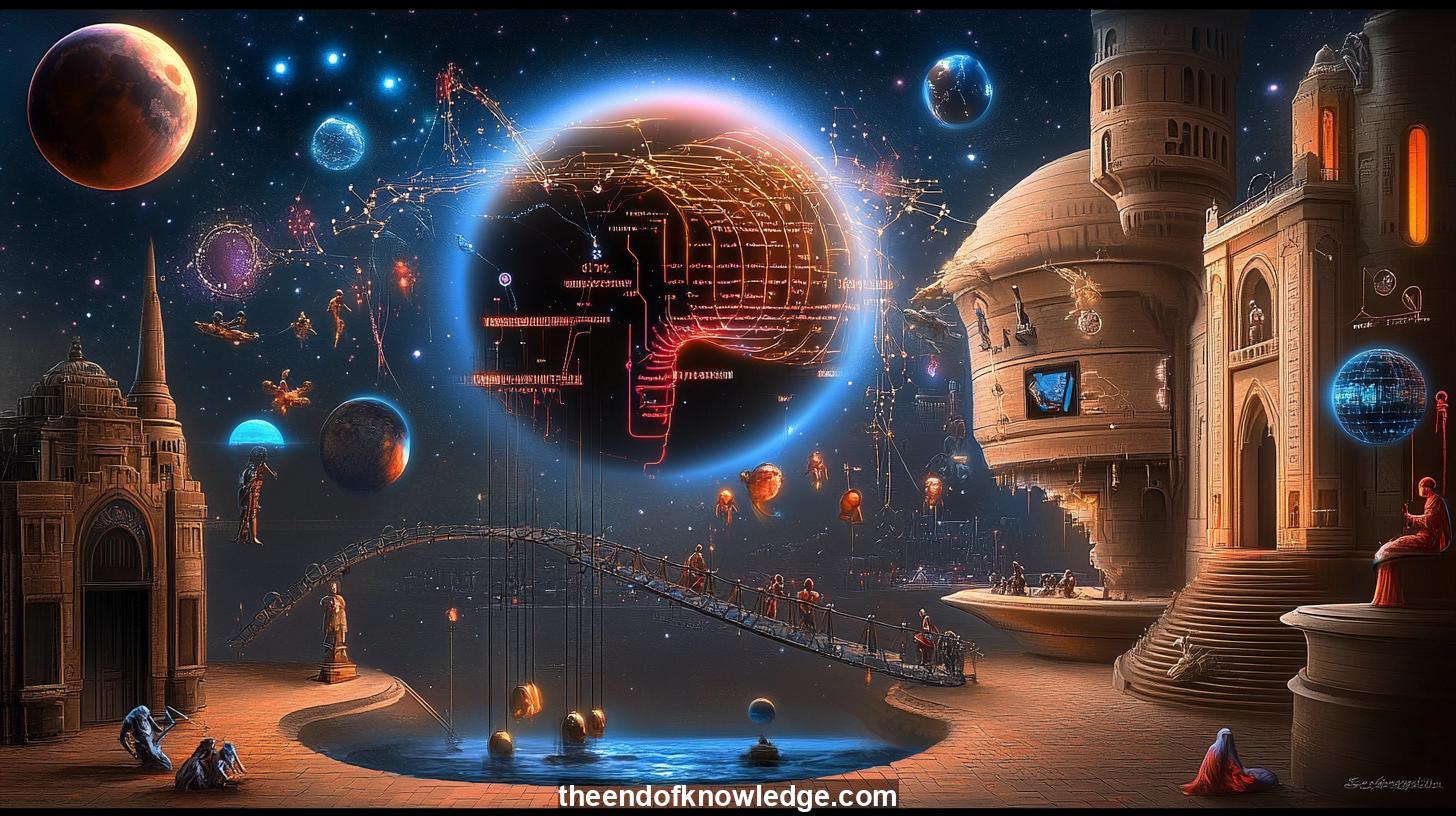 >
>
Concept Graph, Resume & KeyIdeas using DeepSeek R1 :
Resume:
The discussion delves into the intersection of artificial intelligence (AI), transhumanism, and philosophical thought, exploring their implications for humanity's future. It begins with the concept of singularity, where AI surpasses human intelligence, potentially leading to significant societal transformations. This is juxtaposed with transhumanism, the idea of enhancing human capabilities through technology, raising ethical questions about the boundaries between human and machine.30 Key Ideas:
1.- Singularity refers to AI surpassing human intelligence, potentially transforming society.
2.- Transhumanism involves enhancing human capabilities through technology.
3.- Ethical considerations in AI development mirror historical scientific responsibilities.
4.- Philosophical thought influences understanding of AI's role in human evolution.
5.- Kurzweil's vision of a unified cosmic intelligence aligns with theological concepts.
6.- Huxley's ideas on human consciousness evolution relate to AI advancements.
7.- AI raises questions about human identity and machine boundaries.
8.- Theological debates on God and existence inform AI discussions.
9.- Historical science-religion debates provide context for AI ethics.
10.- Advanced technologies require careful consideration of societal impact.
11.- AI could lead to divine-like consciousness or simulated reality.
12.- Ethical AI development must address responsibility and accountability.
13.- Transhumanism challenges traditional views of human enhancement.
14.- The intersection of technology and spirituality explores existential questions.
15.- Historical and cultural contexts shape perceptions of AI and transhumanism.
16.- Theological themes in AI discussions include creation and divine purpose.
17.- AI's potential to reshape human existence is both promising and risky.
18.- Philosophical inquiry into AI's nature and implications is essential.
19.- Ethical frameworks for AI must consider human values and morals.
20.- The future of AI and transhumanism demands interdisciplinary dialogue.
21.- AI's impact on human consciousness is a critical area of exploration.
22.- Theological perspectives offer insights into AI's role in human destiny.
23.- Historical scientific advancements inform current AI ethical debates.
24.- Transhumanism reflects humanity's quest for self-improvement and evolution.
25.- AI challenges traditional notions of intelligence and consciousness.
26.- Ethical considerations in AI must address societal manipulation concerns.
27.- Theological concepts of God and creation relate to AI development.
28.- AI's potential to transform society necessitates ethical guidelines.
29.- The intersection of technology and spirituality explores human existence's future.
30.- Responsible AI development requires understanding its philosophical and theological implications.
Interviews by Plácido Doménech Espí & Guests - Knowledge Vault built byDavid Vivancos 2025